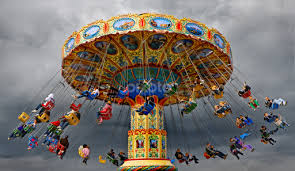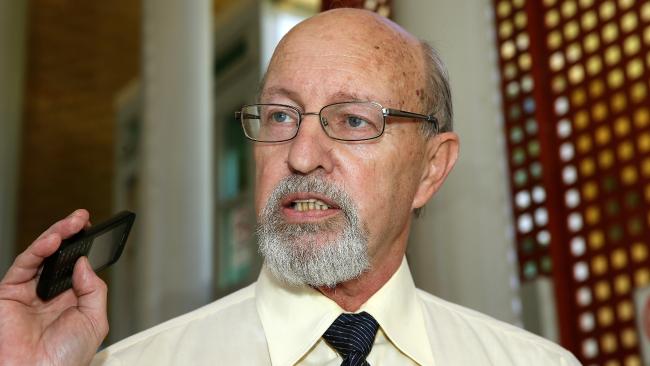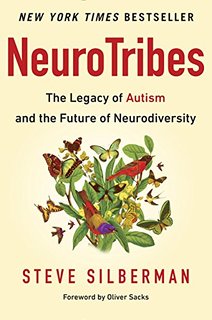
About 6 months ago, after years of participating in various Autism/Asperger’s groups and pages on Facebook, I decided to delete my own Facebook account and the fledgling Women’s Asperger’s Awareness page that I’d been running.
I’m not sure whether others will agree with me on this, but as far as I’m concerned, there’s been a gradual deterioration regarding the overall quality of the topics posted within Autism/Asperger’s groups and an unsettling lack of authenticity appearing within many of the comments and responses that have filled group discussions, over the last few years.
Many of the groups that I enjoyed participating in the most were those that started out as small, authentic, safe and friendly spaces to interact with others with Autism online.
Many of those same groups have now become victims of their own success.
Some have become so large and fuelled by so many conflicting opinions, that it’s almost impossible to have a decent conversation about anything without having to combat those who either disagree with everything and anything or those who wish to simply hijack threads for their own amusement.
Many groups have also become inundated by members who do not themselves experience Autism/Asperger’s but who are there instead because they are seeking information about those of us with Autism for some reason or another.
Now generally, I don’t mind if non-autistic people want to join Autism based groups, but I do mind if they join such groups without declaring their real purpose for being there.
Especially those who are using such groups to tout for clients and build up their own professional profile or who are attempting to make money out of those with Autism in any way, shape or form.
This issue aside, there are also multiple clashes of perspectives going on within these groups as well, due entirely to the fact that non-autistic people do not declare themselves to be so.
For example, I’ve witnessed many nasty exchanges within Autism/Asperger’s groups that have occurred purely because some members are parents of a child with Autism and have taken offense at topics covered within the group simply because they have completely misunderstood, or to put it perhaps more honestly, held no internal comprehension of the lived experiences, that other autistic people within the group were trying to discuss.
And of course, this same scenario goes the other way as well where autistic people have attacked parents’ due to similar misunderstandings.
Such exchanges often lead to person’s with Autism feeling as if they need to leave the group for their own emotional well-being.
Which, as far as I’m concerned, is completely unfair.
Yet this is what Ioften witnessed happening as a result of such online conflicts.
Along with this issue, there was also a tendency for group after group to all post the same topic within minutes of each other.
Often I would find myself commenting on a topic in one group, only to find that the exact same topic was also the lead post in 5, 6 and even 7 other groups.
It made me wonder what the point of being a member of more than one Autism/Asperger’s group actually was if they were all going to run with the same topics.
This issue only became more pronounced once I’d decided to start running my own page.
Now I’m a big believer in original content and to that end, I’d spend endless hours searching for original blog posts and information written by other women with Autism/Asperger’s to share on my page..
Yet time and time again, within minutes of my posting a newly discovered piece of information or blogger, half a dozen other pages or groups would take the same piece of information and post it to their wall.
So in the end it felt as if all I was actually doing was spending my time finding interesting and informative pieces of work, only to have other pages and groups claim them as their own.
It was about this time that I realize that ‘I’m possibly not supposed to feel this way about the eternal loop of “sharing” that goes on in regards to Facebook groups and pages.’
Yet the feeling remained and I simply could not shake it off.
So I started spending less and less time working on my page and participating in group discussions.
Instead I just sat back and observed how this thing called Facebook worked.
This may seem strange but the more I observed the way in which Facebook groups and pages both endlessly and simultaneously feed off and devoured each other, the more I realized that Facebook, just like every other business model, is designed to perpetuate its own success above and beyond anything else.
The more Autism and Asperger’s groups, or any other groups, pages or causes it hosts, the more users Facebook gains.
The boffins behind Facebook don’t care about duplication or authentication.
Heck, they actively encourage their users to “share” everyone and anyone’s pictures and posts, regardless of whether they’re witty one liner’s or withering examples of stupidity.
We think we are using Facebook, but the truth is, Facebook is using us.
Making billions of dollars by selling advertising space on our pages whilst at the same time gathering up all of the information we are silly enough to give away about ourselves for free and selling it on to interested third parties.
Whoever ‘they’ may be.
Once I realized this, I also realized that each and every Facebook user, regardless of type: group, page, organization or individual, they have all been groomed via the “share” button, to cannibalize each-others ideas, fashions, hairstyles, food fads and on and on it goes.
I ended up eventually having a …‘Wait….stop the world… I want to get off…’ moment.
So I decided to jump off the Facebook merry-go-round.
I realized that I felt wrong about other pages and groups “sharing” my finds for a very good reason.
And that reason is, that in the real world, if someone walked into my home, without my permission and took one of my family photos, or one of my books, and then walked away with it, it would quite rightly be called “stealing”.
After all, isn’t that exactly the kind of example they use to try and tell us that downloading movies or “movie piracy” is a wrong?
It’s a crime.
So, if someone else is losing money from online “sharing” it’s a crime.
Yet, if Facebook is making shiploads of money out of allowing everyone to “share” whatever they want online, regardless of whether or not the thing they’re sharing is their own , it’s called social networking.
Personally, I can do without the sense of confusion that being told one action is wrong in one place, while the exact same action is not only considered right but actively promoted in another place.
Thanks but no thanks.
I much prefer the way Autism Facebook groups were when they first started up.
Back when the awe of simply finding another person in the world who thought like you, was enough.






 empathy with Autistic people.
empathy with Autistic people.